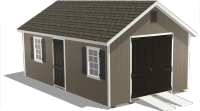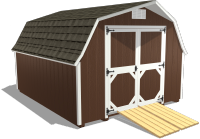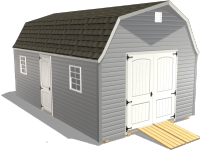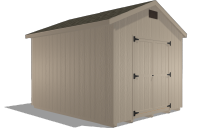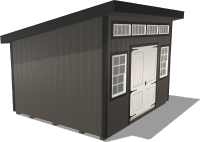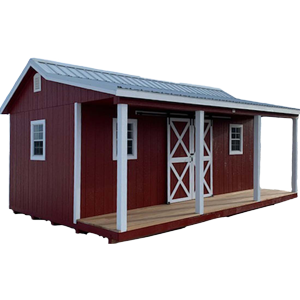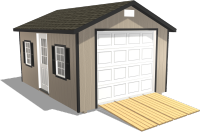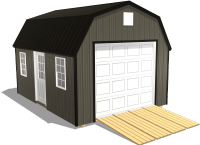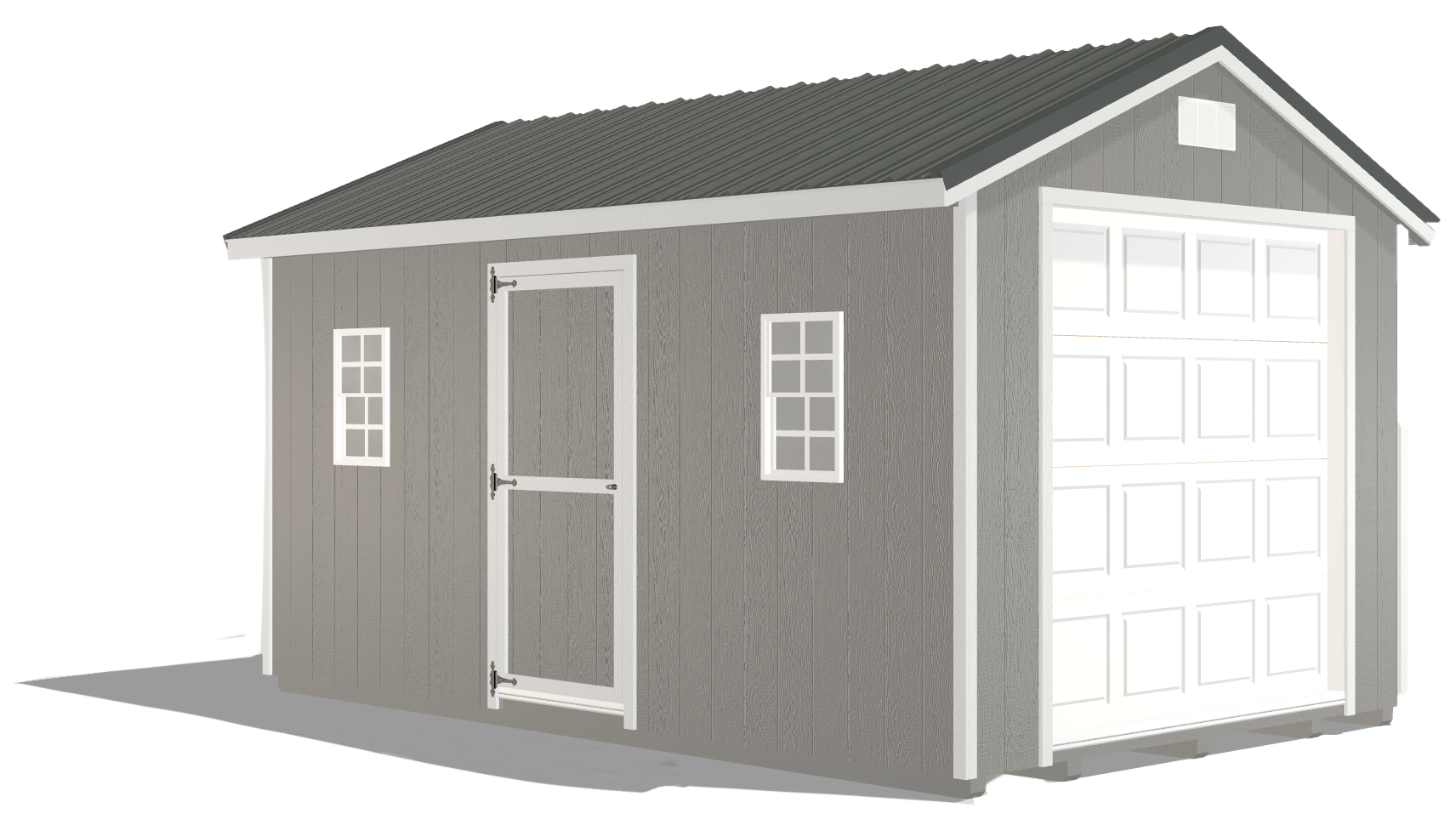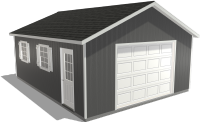Ensuring the Health and Happiness of Your Hens: Coop Selection Tips
by Dakota Storage Buildings, on February 21, 2024
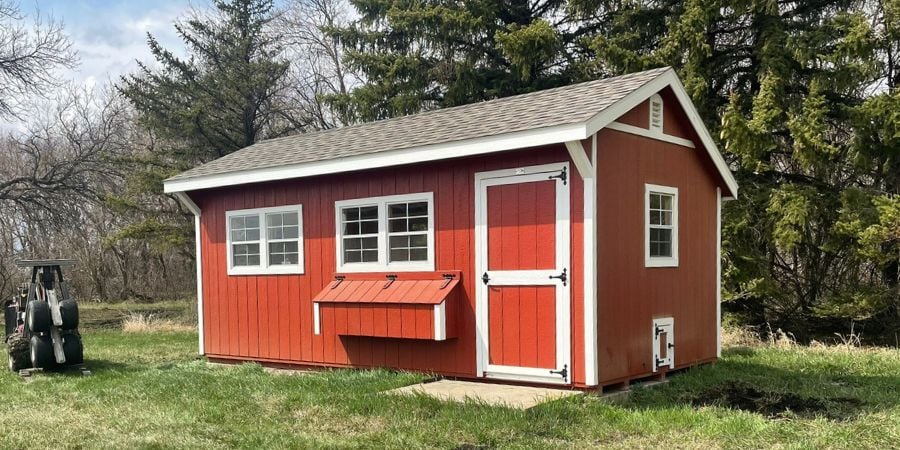
Where backyard chickens live, particularly their coop is a pivotal aspect that significantly impacts their overall health and well-being. A clean, well-maintained chicken coop is not just a preference; it is an absolute necessity for maintaining the health of your flock. It plays a critical role in preventing diseases, controlling parasites, and ensuring that the eggs and poultry products you obtain are of the highest quality.
However, the task of cleaning and upkeep can often feel overwhelming, particularly for new chicken keepers or those with busy schedules. Issues like moisture control, ventilation, and managing waste effectively are all part of keeping the coop in top condition. If you are facing difficulties in maintaining your current backyard chicken coops, or if you are seeking to enhance the living conditions of your flock, exploring options for a new, easy-to-maintain coop may be a wise choice. This could significantly reduce the time and effort you spend on upkeep, ensuring that your chickens live in a clean, healthy environment, which in turn, translates to better health for your chickens and higher-quality produce for you.
Easy to Clean Coops, Happy Hens, Happy You
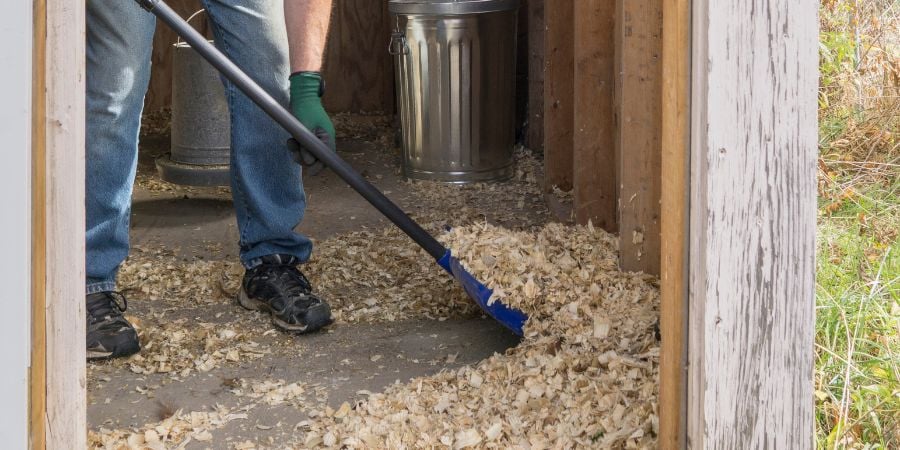
A well-maintained coop not only safeguards your chickens against health risks but also enhances their overall well-being and productivity. Let’s delve into the essential practices of coop cleaning, offering practical tips and strategies to keep your coop in pristine condition. From daily maintenance routines to more intensive monthly cleanings, we are covering everything you need to know to ensure your coop remains a safe, clean, and comfortable home for your hens.
The Right Coop and Cleaning Keeps Your Chickens Healthy
Ensuring the cleanliness of your chicken coop is integral to the health and happiness of your backyard chickens. A dirty, unkempt coop can lead to a host of health problems for your flock, including respiratory issues and infestations of harmful parasites. These health issues not only affect the well-being of your chickens but can also impact their productivity in terms of egg-laying. By keeping the coop clean, you are not just performing a routine chore; you are actively contributing to the creation of a healthy and stress-free environment for your chickens.
Importance of Regular Cleaning
Regular cleaning of backyard chicken coops is crucial. The frequency of cleaning depends on several factors, including the size of your coop and the number of hens you have. As a general rule, it is best to change the bedding whenever you start noticing a bad odor. For many coops, this means a weekly clean-up, but smaller coops or those housing a larger number of hens may require more frequent attention. It is important to be vigilant and responsive to the needs of your coop; a cramped and dirty environment can lead to disease spread and behavioral issues among your flock.
Tips for Effective Coop Cleaning
Effective coop cleaning involves a series of daily, weekly, and monthly tasks.
Daily Tasks: It is essential to remove any uneaten food and refresh water containers daily. This helps prevent the growth of harmful bacteria and keeps your chickens hydrated with clean water.
Weekly Tasks: Replacing the bedding materials should occur weekly. This not only keeps the coop clean but also provides a comfortable living space for your chickens. It is important to choose the right bedding material that is absorbent and easy to replace.
Monthly Tasks: On a monthly basis, a more thorough cleaning is recommended. This involves removing all bedding material, thoroughly wiping down all surfaces with a pet-safe cleaner or a damp cloth, and ensuring the coop is completely dry before adding new bedding. This deep cleaning helps to eliminate any lingering pathogens and provides an opportunity to inspect the coop for any damage or necessary repairs.
Finding the Perfect Home for Your Hens
Maintaining a clean and sanitary environment is fundamental in the world of backyard chicken keeping. The health, happiness, and productivity of your hens largely depend on the condition of their coop. Regular and thorough cleaning is not just a recommended practice but an absolute necessity for any responsible chicken keeper. From preventing diseases and parasite infestations to ensuring a pleasant living space, a clean coop is the backbone of a thriving backyard flock.
Safety and Space Considerations
When it comes to raising backyard chickens, the primary consideration in choosing a coop should always be the safety and comfort of your birds. The coop serves as a sanctuary for your chickens, providing them with a secure place to sleep and lay eggs, away from potential dangers. It is crucial to ensure the coop is fortified against predators, especially when chickens are most vulnerable at night. The design should include secure latching mechanisms and robust materials that deter wildlife and other unwanted visitors. Additionally, the space inside the coop is equally important. The required space depends greatly on the breed and number of chickens you intend to raise. It is a delicate balance; while overcrowded conditions can lead to stress and behavioral problems among chickens, an overly spacious coop can make it difficult for them to stay warm during colder months. Carefully assess your flock's needs to determine the ideal size for your coop.
Materials: Wood, Metal, Plastic
The choice of material for backyard chicken coops can have significant implications for its durability, maintenance, and the overall health of your chickens. Wood, being a traditional choice, offers natural insulation and a classic aesthetic. However, it requires regular maintenance to prevent rot and pest infestation. Metal coops, on the other hand, are durable and predator-resistant but can become extremely hot or cold depending on the weather, affecting the comfort of your chickens. Plastic coops are becoming increasingly popular due to their ease of cleaning and resistance to parasites, though they might lack the insulation properties of wood. Each material has its pros and cons, and your choice should align with the specific needs of your climate, flock, and maintenance preferences.
Design and Ventilation
A well-thought-out design is critical for the health and happiness of your chickens. The coop should provide ample space for the chickens to move, sleep, and lay eggs comfortably. It should feature separate areas for different activities, ensuring that the chickens have enough room to engage in their natural behaviors. Proper ventilation is another key aspect of coop design. Good air circulation is essential to keep the coop dry and free from ammonia fumes and other harmful gases. Ventilation helps regulate the temperature inside the coop, providing a comfortable environment in all weather conditions. It also reduces the risk of respiratory problems, which are common in poorly ventilated spaces. When choosing a coop, look for designs that incorporate adequate ventilation while keeping the chickens protected from drafts and extreme temperatures.
Extras That Keep Your Flock Happy and Healthy
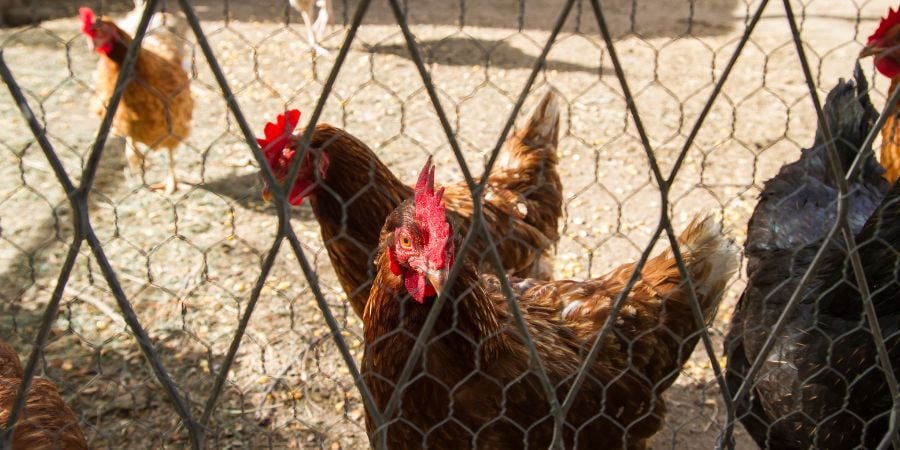
Embarking on the journey of backyard chicken keeping requires a commitment to not just meeting the basic needs of your flock, but also ensuring their overall well-being and comfort. There are essential aspects of chicken care that go beyond just providing feed and water. A balanced diet, proper sunlight exposure, secure fencing, and well-maintained nest boxes collectively contribute to the health, happiness, and productivity of your hens.
Feed, Garden Treats, and Feeders
Caring for backyard chickens goes beyond providing them with just any feed; it is about understanding and catering to their nutritional needs. While it may seem convenient to purchase a large feeder for your chickens and fill it up with feed for the week, this approach can overlook the importance of a balanced diet. Chickens require a variety of nutrients, which can be supplemented with garden treats like vegetables and fruits. These treats not only provide essential vitamins and minerals but also encourage natural foraging behavior. Additionally, the type of feeder you use plays a crucial role in maintaining hygiene and preventing food waste. Selecting the right feeder that minimizes spillage and is easy to clean can significantly contribute to the overall health of your flock.
Access to Sunlight
The role of sunlight in the health of backyard chickens is often underestimated. While the coop provides necessary shelter and a secure place for laying eggs, access to sunlight is essential for the chickens' physical and mental well-being. Sunlight exposure is crucial for vitamin D synthesis, which is vital for bone health and eggshell quality. It also plays a role in the regulation of their behavioral patterns. Ensuring that your chickens have enough outdoor time in a safe, enclosed run where they can bask in the sunlight is as important as providing them with a secure coop for the night.
Sturdy Wire and Fencing Installation
The importance of sturdy wire and fencing for an enclosed run cannot be overstated. This is your first line of defense against predators and a crucial aspect of keeping your chickens safe. Proper installation of robust fencing material is key. It should be strong enough to withstand attempts by predators and designed to prevent smaller animals from squeezing through. The fencing also plays a role in keeping the chickens contained within a safe area, preventing them from wandering into potentially dangerous spaces or neighboring properties. Investing time and resources in setting up the fencing correctly from the start can save you from future headaches and ensure the long-term safety of your flock.
Nest Boxes and Bedding
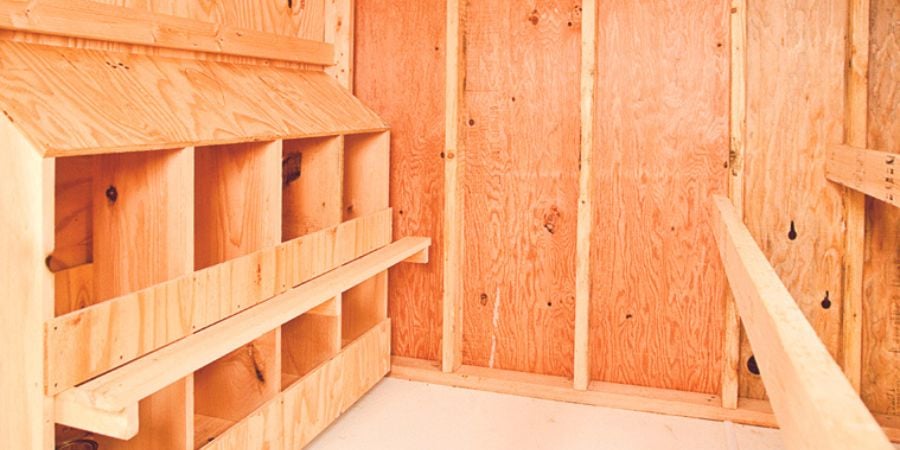
Nest boxes are a critical component of chicken care, as they are the places where your hens will lay their eggs. Each hen has her preference, but generally, they tend to use the same one or two boxes. The comfort and cleanliness of these boxes are vital. They should be filled with soft, clean bedding to encourage laying and to keep the eggs clean. The type of bedding you choose, whether it is straw, wood shavings, or another material, should be changed regularly to maintain hygiene. The positioning of the nest boxes within the coop is also important; they should be placed in a quiet, dimly lit area to provide a calm and secure environment for egg laying.
Selecting the Ultimate Coop for Your Chicken
Selecting appropriate backyard chicken coops is more than just a practical decision; it is a crucial step in ensuring the well-being and contentment of your backyard flock. A coop that meets your chickens' needs in terms of space, safety, and comfort can significantly enhance their quality of life and, in turn, their health and productivity. Our comprehensive guide is designed to assist you in navigating the myriad of options available, helping you find a coop that is not only durable and easy to maintain but also aligns perfectly with the specific needs of your chickens and your backyard environment. Whether you're a first-time chicken keeper or looking to upgrade your current setup, our guide is a valuable resource. Download our chicken coop guide and embark on a journey to discover the ideal coop that caters to your flock's unique needs, ensuring their happiness and health for years to come.




